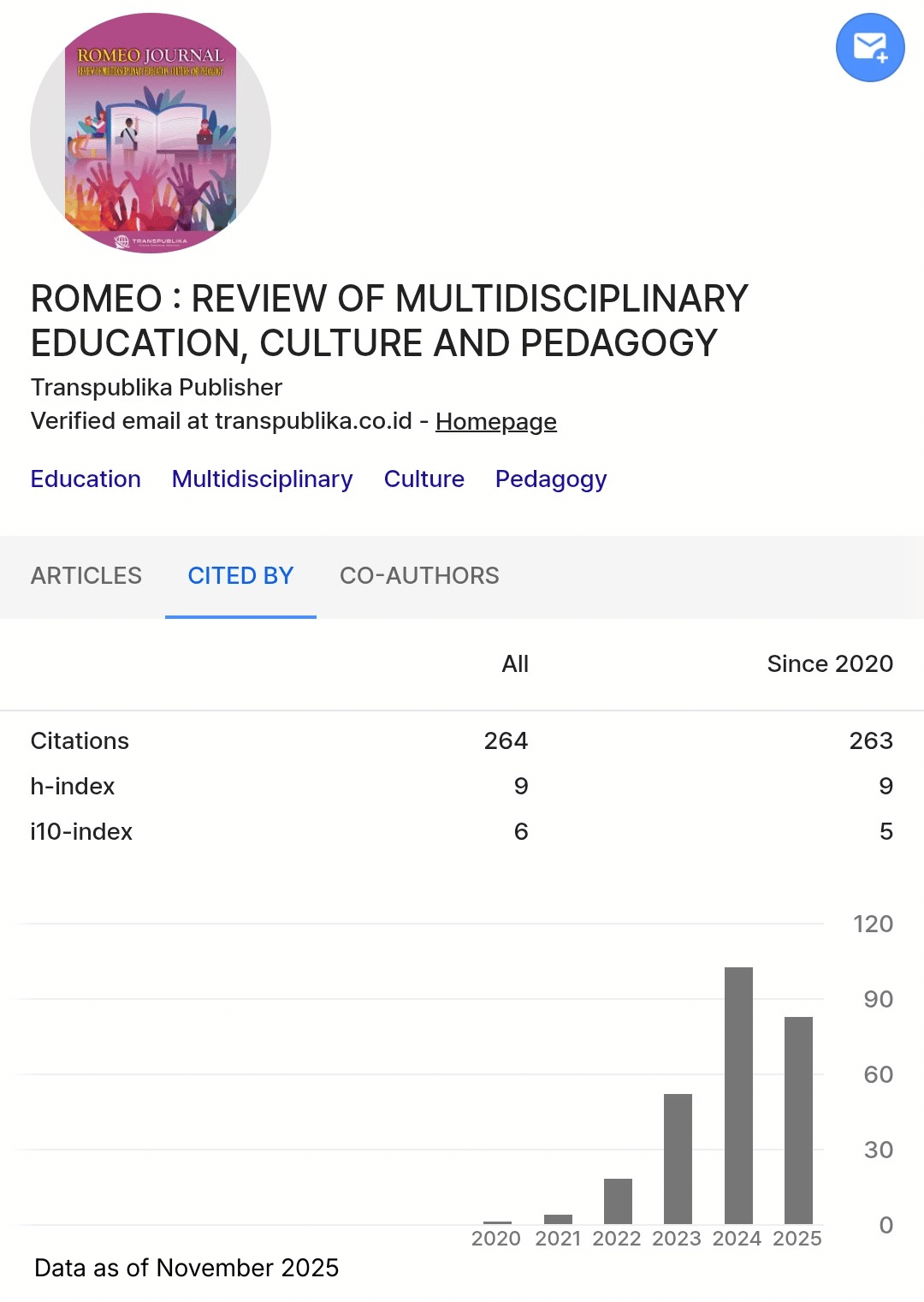Analysis of Politeness Maxims in Indonesian Language Use in College Environments
Main Article Content
Anita Puspawati*
Language politeness is part of pragmatics which studies the use of language in communication. Pragmatics examines context-bound meaning, in contrast to semantics which examines context-free meaning. In interaction, the ability to speak clearly and politely is essential for effective communication. Leech's Principles of Politeness include six maxims: tact, generosity, approbation, modesty, agreement, and sympathy maxim. This study aims to describe the realization of language politeness in the college environment based on Leech's six maxims of politeness. The method used is pragmatic analysis with a qualitative approach. Data were collected through observation and documentation of conversations in the campus environment of Bandung Islamic University (Unisba). Leech's theory is used because it is able to assess politeness from two perspectives, namely the speaker and the interlocutor. The results show that the principle of politeness is still often violated in campus communication. Therefore, the understanding and application of language politeness need to be improved in daily life and made part of learning in schools and universities so that academic and social communication is more effective and harmonious.
Banurea, E. G. N. ., Siagian, B. A., & Hasibuan, R. (2022). Strategi Kesantunan Berbahasa dalam Pembelajaran Bahasa Indonesia di Prodi Pendidikan Bahasa dan Sastra Indonesia Universitas HKBP Nommensen Medan. JIIP - Jurnal Ilmiah Ilmu Pendidikan, 5(10). https://doi.org/10.54371/jiip.v5i10.960
Barron, A., & Schneider, K. P. (2009). Variational pragmatics: Studying the impact of social factors on language use in interaction. In Intercultural Pragmatics (Vol. 6, Issue 4). https://doi.org/10.1515/IPRG.2009.023
Bianchi, F., & Gesuato, S. (2016). Pragmatic issues in specialized communicative contexts (Vol. 29). Brill.
Brown, P., & Levinson, S. C. (1987). Politeness: Some Universals in Language Usage. In Press Syndicate of The university of Cambridge (Vol. 22, Issue 4).
Chaer, A. (2010). Kesantunan Berbahasa. Rineka Cipta.
Departemen Pendidikan Nasional. (2008). Kamus Besar Bahasa Indonesia. Gramedia Pustaka Utama.
Geoffrey, L. (1993). Prinsi-Prinsip Pragmatik Terjemahan oleh MDD Oka. Penerbit Universitas Indonesia.
Huth, T. (2020). Interaction, Language Use, and Second Language Teaching. In Interaction, Language Use, and Second Language Teaching. https://doi.org/10.4324/9781003017356-5
Mahsun, M. S. (2005). Metode penelitian bahasa. PT Raja Grafindo Persada.
Nadar, F. X. (2009). Pragmatik & penelitian pragmatik. Graha Ilmu.
Nur, D. C., & Rokhman, F. (2017). Kesantunan Berbahasa Mahasiswa dalam Berinteraksi di Lingkungan Universitas Tidar: Kajian Sosiopragmatik. Seloka: Jurnal Pendidikan Bahasa Dan Sastra Indonesia, 6(1).
Nurjamily, W. O. (2015). Kesantunan berbahasa indonesia dalam lingkungan keluarga (kajian sosiopragmatik). Jurnal Humanika, 3(15), 1–18.
Piirainen-Marsh, A. (1998). Meaning and the social context: Notes on the pragmatics of cross-linguistic and cross-cultural intelligibility. Studia Anglica Posnaniensia: International Review of English Studies, 333–342.
Pranowo. (2009). Berbahasa secara santun. Pustaka Pelajar.
Rahardi, R. K. (2005). Pragmatik: kesantunan imperatif bahasa Indonesia. Erlangga.
Soeparno, S. (2002). Dasar-Dasar Linguistik Umum. Tiara Wacana Jogja.
Sudaryanto. (1993). Metode dan aneka teknik analisis bahasa: Pengantar penelitian wahana kebudayaan secara linguistis. Duta Wacana University Press.
Tanskanen, S. (2004). Patterns of cohesion in spoken and written dialogue. Discourse Patterns in Spoken and Written Corpora, 120, 89.
Tarigan, H. G. (2008). Membaca Sebagai Suatu keterampilan Berbahasa. Angkasa.
Vidianingrum, P. R., Putri, D. C., Aulia Putri, N. D., Shankara, B. O., Zerlinda, E. D., & Satria, M. H. (2024). Analisis Pemahaman Kesantunan Berbahasa Indonesia Pada Mahasiswa Teknik Industri UPN “Veteran” Jawa Timur . Jurnal Pendidikan West Science, 2(03 SE-Artikel), 170–176. https://doi.org/10.58812/jpdws.v2i03.1230
Wa’adi, A., Subaweh, A. M., & Muthmainnah, F. (2024). Analysis of Language Policy in the Social Interactions of Pondok Pesantren Darul Ma’arif Kaplongan. Review of Multidisciplinary Education, Culture and Pedagogy, 3(3), 218–227. https://doi.org/10.55047/romeo.v3i3.1282
Watts, R. J. (2003). Politeness. Cambridge University Press.
Wijana, I., Putu, D., & Rohmadi, M. (2009). Analisis wacana pragmatik. Yuma Pustaka.
Yule, G. (1996). Pragmatics. Oxford university press.
Zamzani, Z. (2011). Pengembangan alat ukur kesantunan bahasa Indonesia dalam interaksi sosial bersemuka. Litera, 10(1).












